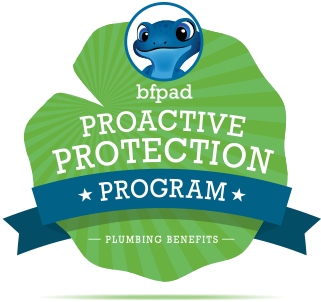
Finding a Suitable Residential Water Filtration System | Irving, TX
How much importance do you give to the quality of water that you use? While so many of us may not pay much attention, filtered and pure water is essential for a healthy body. What does this imply? That you should definitely invest in a water filtration system but when doing so, ensure that you are going for an appropriate model.
Here is some advice that would be of help when buying a water filtration system.
The Importance of a Water Filtration System
Water is widely used and consumed by all of us on a daily basis. Considering the amount of contaminants water has, it is vital that we remove them before using the water.
Generally, water quality is deteriorating day by day in our country. Toxins and microorganisms from various sources enter the water lines, and ultimately our residential plumbing system. Toxins are also collected from pesticides, herbicides and heavy metals, and enter our water reservoirs. These contaminants should not even be absorbed into our skin, but unfortunately, so many of us drink them and shower in them.
The EPA has been known to find around 2000 chemicals in water, and only 87 of them are safe. That is just about 5%. In light of all these facts, a water filtration system has become absolutely vital and somehow you must stretch your budget for the unit.
How Can You Decide Which Is the Best System for Your Needs?
Not a simple process, but read on for some information and take help from a reputed plumbing service in the Irving, TX area.
Determining the Contaminants in Your Water
The first step that you should take. What contaminants are present in your home water? Not every filter can remove all contaminants; you’ll want one that can specifically remove the harmful chemicals which your home water has.
So, determine the chemicals which you are receiving, and then start searching for a system that can deal with them.
City water
In many areas, water is treated chemically before it is sent out to residential homes. But many a times, it is not filtered which is why we should install a filtration system. Certain disinfectants like chlorine are added to the town water so as to kill unwanted pathogens. But these compounds do have other side effects as well. Chlorine, for instance, reacts with the organic and inorganic matter that is found in water, and forms other harmful products. Fluoride is also added to public water, but it has its own disadvantages.
If you receive municipal water in your home, then you may get hold of district reports that determine the quality of local water. These reports also mention contaminants present, which would give you an idea about the kind of water filtration system you should have in your home.
That being said, it is a more preferable option to get the water tested by yourself. Municipalities generally report in line with EPA requirements, so their reports may not provide all details.
Well Water
Well water is usually not treated chemically, but it can still contain bacteria, pathogens and other microorganisms. Well water may also contain manganese, hydrogen sulfide and iron in greater quantities than desirable.
Coming Up with Personalized Water Goals
So what does the report tell you? Use the information and accordingly, set goals. Do you want filtered water running in all taps? Or do you only remove toxins from drinking water? Accordingly, decide a filter type.
Generally, water filtration systems can be broken into two main types.
Point of Use Water Filtration System
These come as a standalone unit, customizable for every area of your house. Considering your kitchen, a POU water filter may be pitcher that you can place in the fridge or gravity filter which can be installed over the counter top. You can also find individual filters which can be integrated with showers.
Point of Entry or POE System
These systems are installed at the point where water enters your plumbing system. Such systems filter water that is used throughout the house. Obviously, the upfront costs associated with this kind of water filtration system are more, but it requires very little maintenance and lasts for several years so that is compensated.
Choosing the Most Suitable System
Once you have decided between POE and POU systems, you can determine the kind of unit that you specifically want.
A typical water filter features s porous media, usually activated carbon, which improves odor and taste, and removes a wide range of chemicals. For the system to be effective, the carbon media must be prepared. Manufacturers often offer various types of activated carbon so that you get higher protection.
Reverse osmosis is used in many water filters. Water is made to pass through a semi permeable membrane, which can remove almost 99% of all contaminants. Manufactures also integrate reverse osmosis filters with deionization cartridges so that a greater number of contaminants can be removed.
Sizing the System
How much water does your family use every day? Every water filtration system is rated by a water capacity which it can effectively filter at any instance. For the system to work effectively, your chosen capacity should be as much as your water consumption or maybe even more.
Still can’t decide on the most suitable system for your needs? Reach out to Bluefrog Plumbing + Drain in the Irving, TX area, and we’ll not only help you select a system, but also install it for you.
















